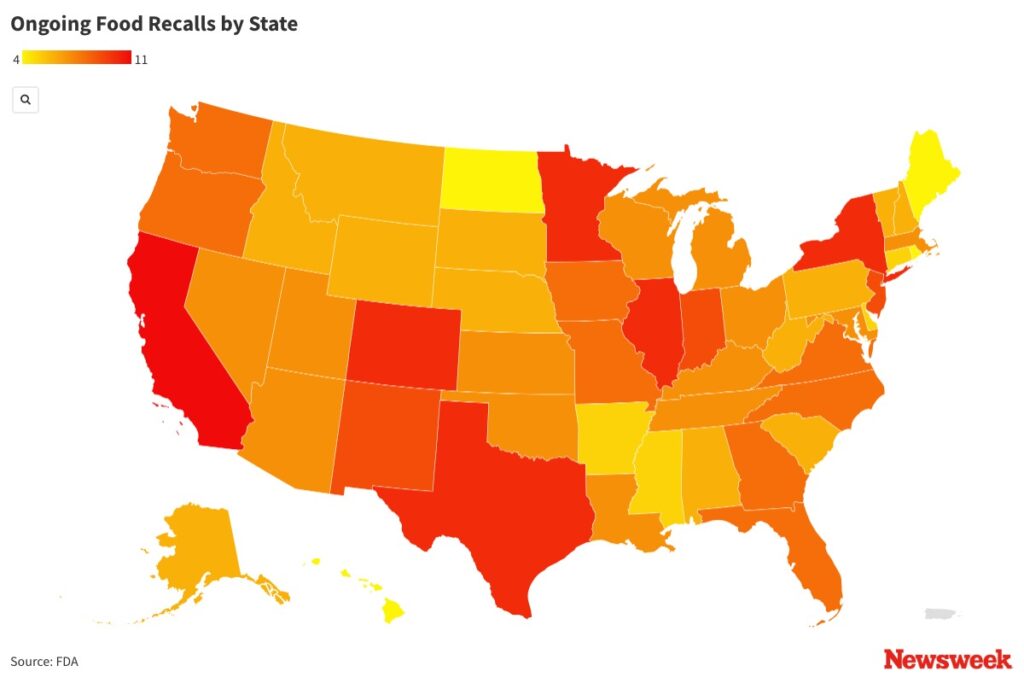The U.S. Food and Drug Administration (FDA) announces numerous food recalls every month, with 21 companies still listed as having active recalls as of the end of November.
Food recalls are made by the FDA for a variety of reasons, including contamination with harmful bacteria, undeclared allergens and mislabeling, and foreign object contamination. They are also classified according to the severity of risk to the public, with three levels designated to each recall.
Below is a map of the number of ongoing food recalls in every state right now.
Here is a full breakdown of every company with an ongoing food recall listed by the FDA at the end of November. Some of the recalls are nationwide, while others are limited to a handful of states. Further details of the specific items recalled by each company can be found on the FDA’s website.
This month, seven Class I recalls are ongoing, for reasons such an undeclared allergens or contamination with harmful pathogens. A Class I recall, the highest risk level, is issued when there is a “reasonable probability” that the use of or exposure to a product could “cause serious adverse health consequences or death.”
The Taylor Farms recall of onions contaminated with E.coli that were served in McDonald’s burgers made headlines earlier this month and prompted a warning from the Centers for Disease Control and Prevention (CDC) after more than 100 people fell ill across 14 states and one person died.
Other less severe recalls have been made, such as a nationwide recall of waffle products made by Treehouse Foods, which were found to be contaminated with Listeria monocytogenes, and was given a Class II risk designation. A Class II recall is “a situation in which use of or exposure to a violative product may cause temporary or medically reversible adverse health consequences or where the probability of serious adverse health consequences is remote.”
The third, and least serious Class III recall is designated when “a situation in which use of, or exposure to, a violative product is not likely to cause adverse health consequences.” Only one of these was given this month for variety drinks and syrups produced by MyChai and distributed nationwide, which were found to “lack production record,” according to the FDA notice.
Hundreds of food recalls are made every year by health authorities when manufacturers break federal regulations that could result in hazards to the American consumer. Regulatory compliance company TraceOne found earlier this year that the most common reason for food recalls are unintended allergens being present in products and contamination with harmful bacteria or viruses.
Undeclared allergens accounted for nearly 40 percent of all recalls issued between 2020 and July 2024, whereas foodborne illnesses like E.coli, Salmonella and Listeria made up 21 percent of all recalls.
“Foodborne diseases can be quite serious––even deadly,” Lisa R. Robinson, vice president of global food safety and public health at Ecolab, told Newsweek. “The challenge is that the pathogens responsible for foodborne illness are all naturally occurring. Salmonella and E. coli, for example, can be found in the gut biome of chickens and cattle. Cronobacter and listeria are even more present – they can be found in soil and fields, so they’re easily tracked from one environment to another.”
TraceOne also found that between 2020 and 2023, the number of recalls issued per year increased from 454 to 547, a jump of more than 20 percent.
Read the full article here

